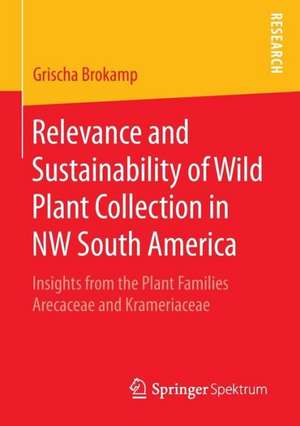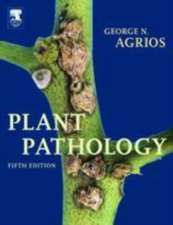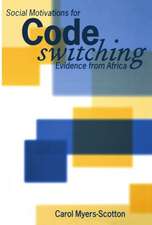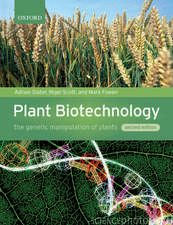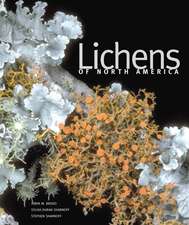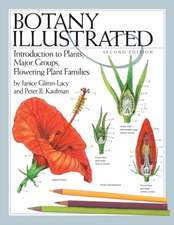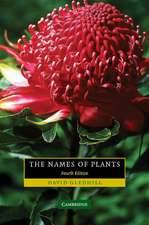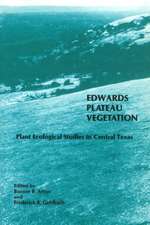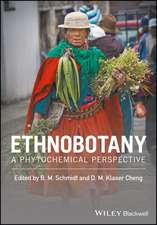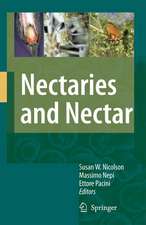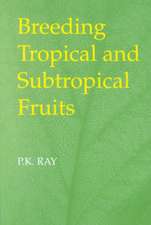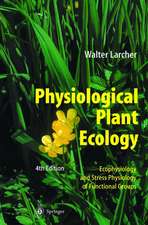Relevance and Sustainability of Wild Plant Collection in NW South America: Insights from the Plant Families Arecaceae and Krameriaceae
Autor Grischa Brokampen Limba Engleză Paperback – 22 ian 2015
Preț: 382.95 lei
Nou
Puncte Express: 574
Preț estimativ în valută:
73.28€ • 76.70$ • 60.99£
73.28€ • 76.70$ • 60.99£
Carte tipărită la comandă
Livrare economică 31 martie-14 aprilie
Preluare comenzi: 021 569.72.76
Specificații
ISBN-13: 9783658086954
ISBN-10: 3658086955
Pagini: 220
Ilustrații: XVIII, 199 p. 11 illus.
Dimensiuni: 148 x 210 x 15 mm
Greutate: 0.3 kg
Ediția:2015
Editura: Springer Fachmedien Wiesbaden
Colecția Springer Spektrum
Locul publicării:Wiesbaden, Germany
ISBN-10: 3658086955
Pagini: 220
Ilustrații: XVIII, 199 p. 11 illus.
Dimensiuni: 148 x 210 x 15 mm
Greutate: 0.3 kg
Ediția:2015
Editura: Springer Fachmedien Wiesbaden
Colecția Springer Spektrum
Locul publicării:Wiesbaden, Germany
Public țintă
ResearchCuprins
Standardized Data Collection on Trade in Palm Products.- Trade in Palm Products in North-Western South America.- Case study on Productivity and Management of Phytelephas aequatorialis (Arecaceae) in Ecuador.- Parasitism and Haustorium Anatomy of Krameria lappacea (Krameriaceae), an Endangered Medicinal Plant from the Andean Deserts.- Abundance, Seed Ecology and Regeneration of Krameria lappacea from the Peruvian Andes.
Notă biografică
Dr. Grischa Brokamp contributed to the EU-FP7-PALMS project and acquired his doctorate at Freie Universität Berlin.
Textul de pe ultima copertă
This study focuses on understanding the socio-economic relevance of plant resources collected from the wild and its relation to current patterns of trade and sustainability. Grischa Brokamp reviews and analyzes the current extent of palm trade in northwestern South America, its impact, limitations and future perspective. Indeed there are conflicts between the commercialization of wild plant resources and the conservation of exploited species, which is illustrated by examples from the plant families Arecaceae and Krameriaceae
Contents
Dr. Grischa Brokamp contributed to the EU-FP7-PALMS projectand acquired his doctorate at Freie Universität Berlin.
Contents
- Standardized Data Collection on Trade in Palm Products
- Trade in Palm Products in North-Western South America
- Case study on Productivity and Management of Phytelephas aequatorialis (Arecaceae) in Ecuador
- Parasitism and Haustorium Anatomy of Krameria lappacea (Krameriaceae), an Endangered Medicinal Plant from the Andean Deserts
- Abundance, Seed Ecology, and Regeneration of Krameria lappacea from the Peruvian Andes
- Researchers and students in the fields of natural resource management and conservation biology
- Government officials, NGO representatives and practitioners in these areas
Dr. Grischa Brokamp contributed to the EU-FP7-PALMS projectand acquired his doctorate at Freie Universität Berlin.
Caracteristici
Study in the field of natural sciences Includes supplementary material: sn.pub/extras
